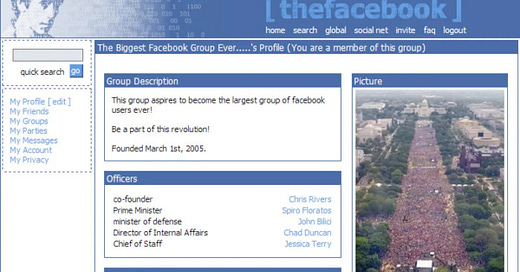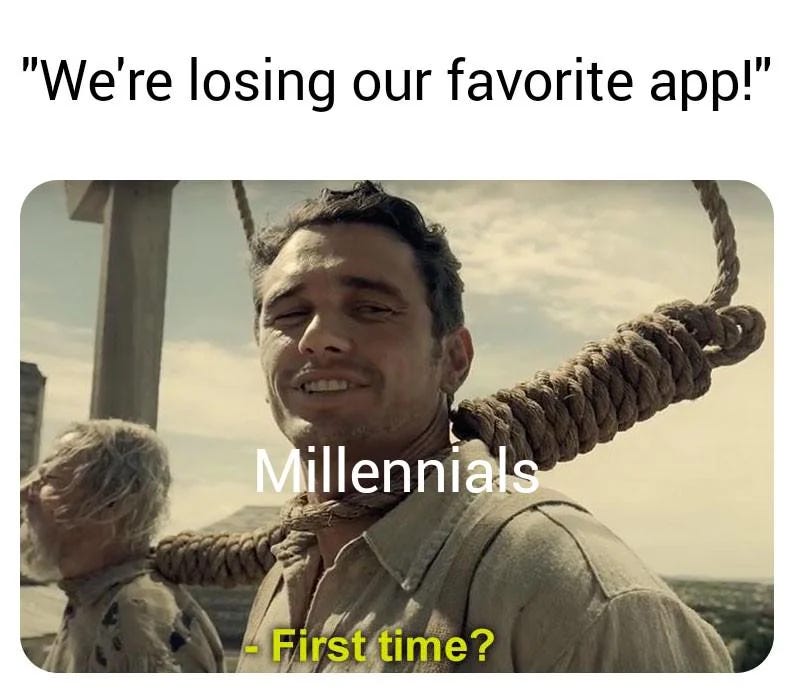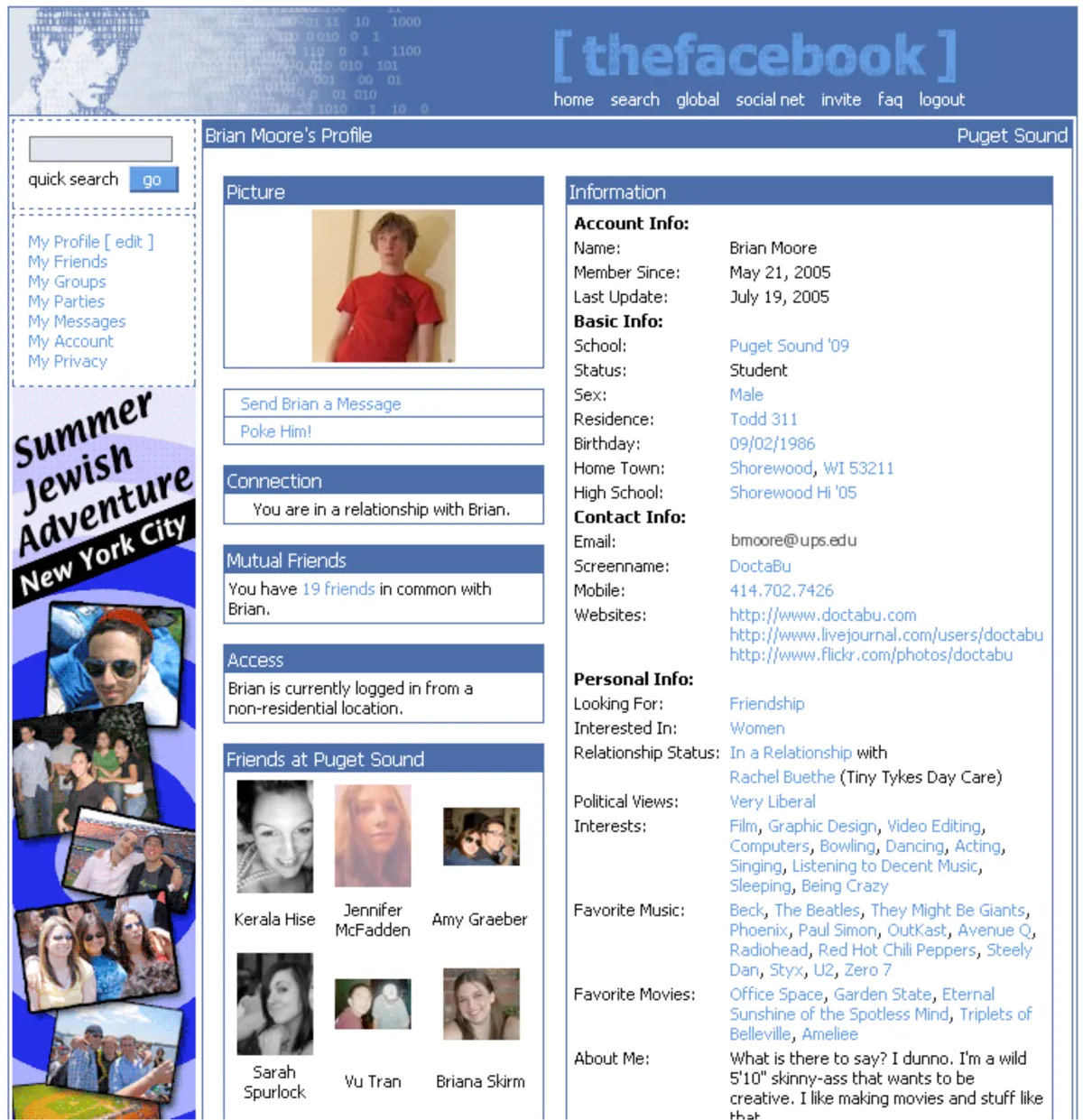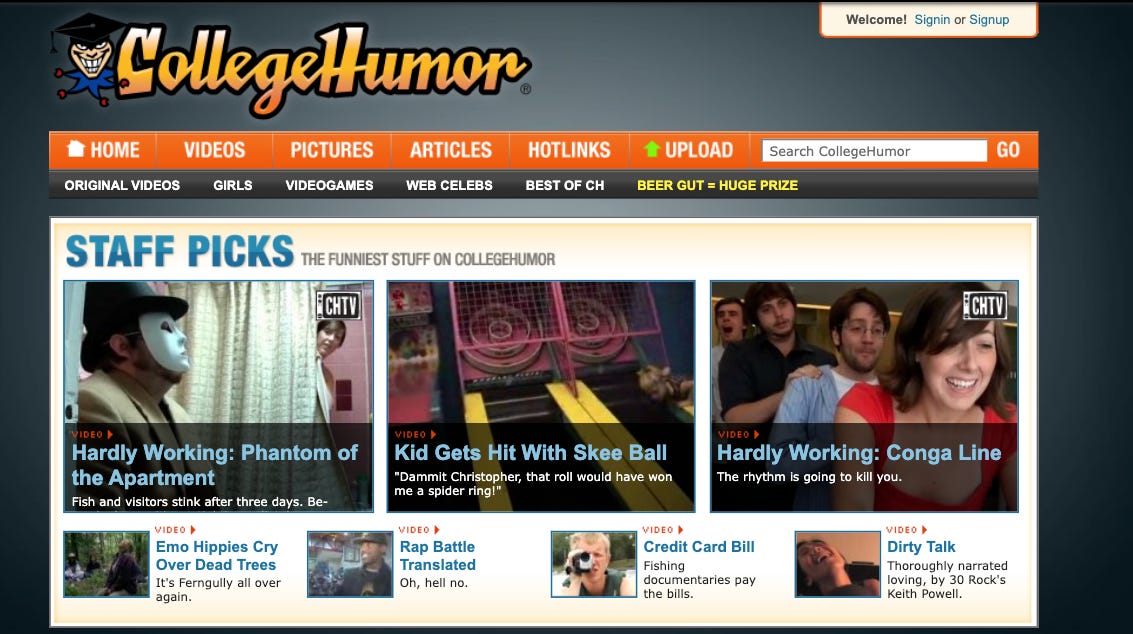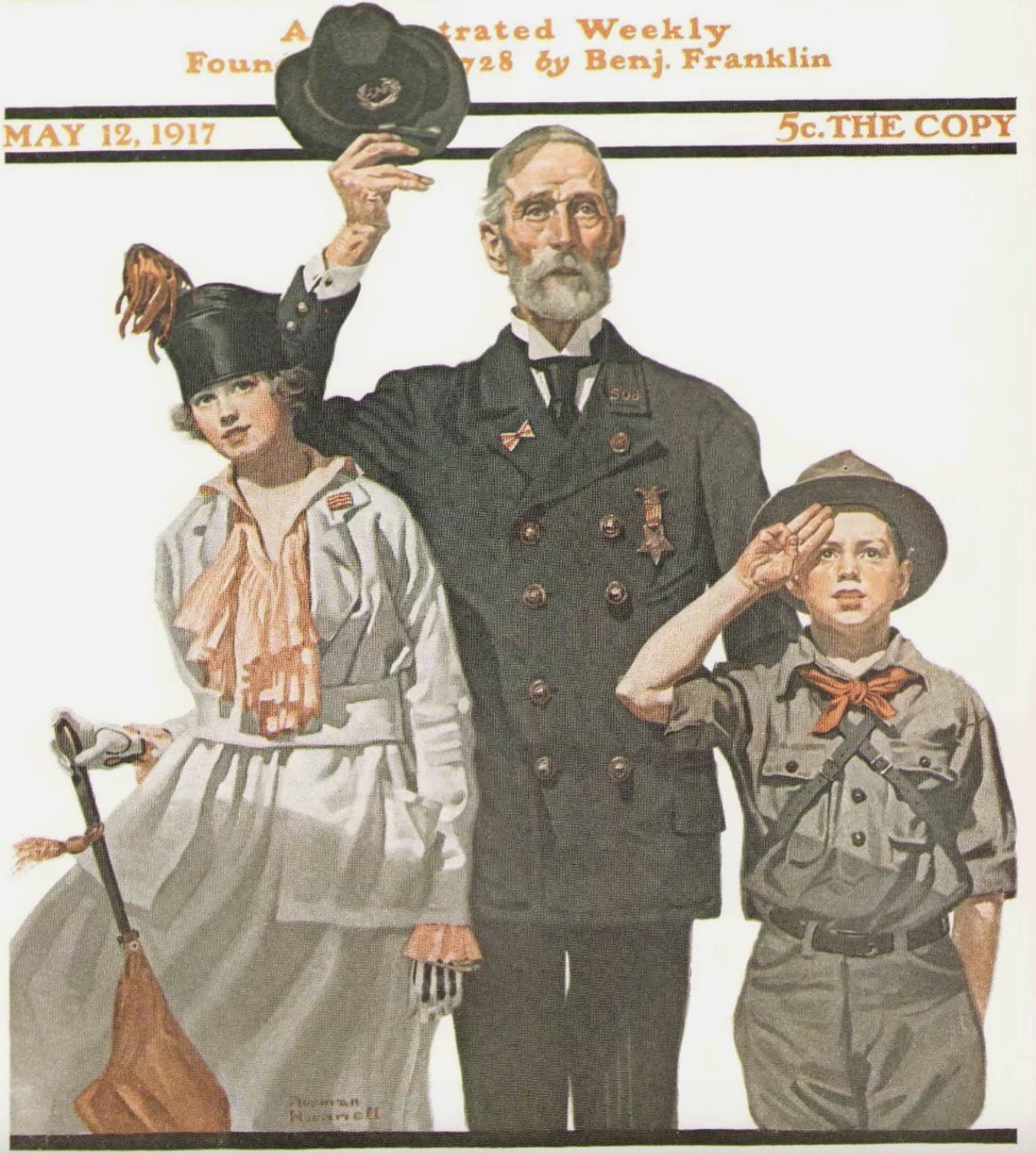TikTok Ban and Gen Z: Dying Social Media is New Generational Rite of Passage
Every generation will now have to grapple with the death of their own social media. Now it is happening to Gen Z and TikTok.
While older generations have been arguing over X vs. BlueSky, Gen Z has been off creating their own cultural space on TikTok. All their videos end up getting reposted on other platforms a week after they go viral on TikTok. In short, TikTok has the juice, or else it did before this week’s ban.
While President Donald Trump offered a reprieve, bringing the site back at least in the short-term, Gen Z hasn’t been happy that the place they built and love has become a political football. Whether you agree with the principles of the ban or not, you can at least recognize that a generation suddenly must grapple with losing their home.
The rise of social media and its impact on generations has been well documented. But given the limited timeframe that we’ve had them, the ramifications of their demise for those same generations are still playing out.
As humans, the death of social media platforms is a new experience. We haven’t seen the central facet of our social lives suddenly flicker out like a broken porch light.
Certainly, every generation had to deal with the end of some kind of media important to their cultural legacy. I myself collect old magazines like National Geographic or Saturday Evening Post that helped define generations of past Americans.
The difference is the two-way street of communication on the Internet. Users are generating content daily through these platforms, not simply consuming it. People are making new friends and connections right from their screens. This means that the demise of a site feels more like the loss of a real social network. The Internet is real life now.
The death of a collective social network has become a rite of passage for generations. It’s something young Gen X and all Millennials have already grappled with as we have aged. TikTok is just the latest for Gen Z—the same will eventually happen to Gen Alpha, Gen β, and so on with platforms that haven’t even been invented yet.
The Millennial Facebook
Us Millennials grew up being praised as “Digital Natives” or slandered as the “Me Me Me Generation.” Most of us were actually born in a more analog age, only aging into computers, the Internet, and, eventually, social media. We were truly the experiments for modern platforms that everyone uses today.
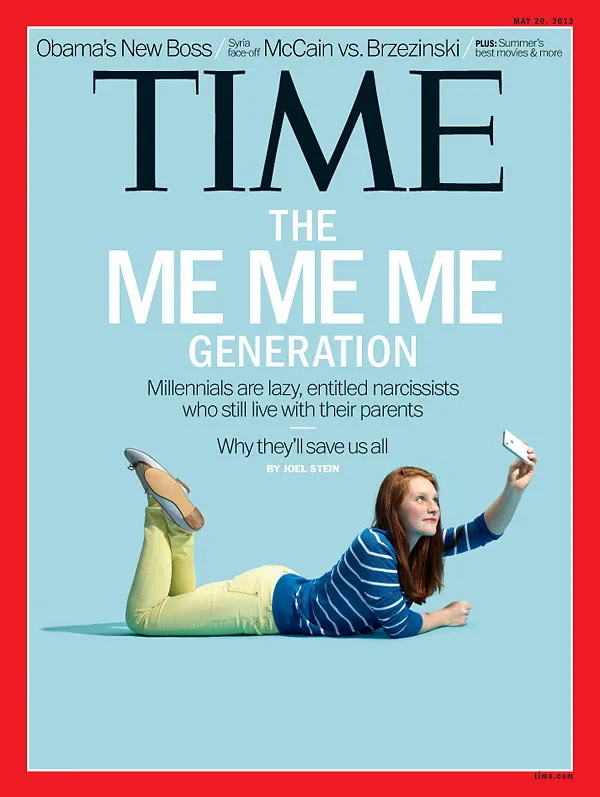
I admit that our generational experience doesn't quite have the same urgency as the US government shutting down TikTok over the weekend. Although, I did live in China for a semester and had to lose all the sites blocked there such as Google, Facebook, Twitter, etc—praying my VPN worked every day.
Our generation can offer some lessons from our relationship with Facebook.
Facebook truly was the Millennial social media platform. It was launched in 2004, growing rapidly over our formative years in college. Unlike modern social media platforms, Facebook was initially only available to certain universities, slowly expanding to anyone with a .edu email (e.g. college students). In fact, the network itself was closed, with each college acting as a walled garden not connected to others
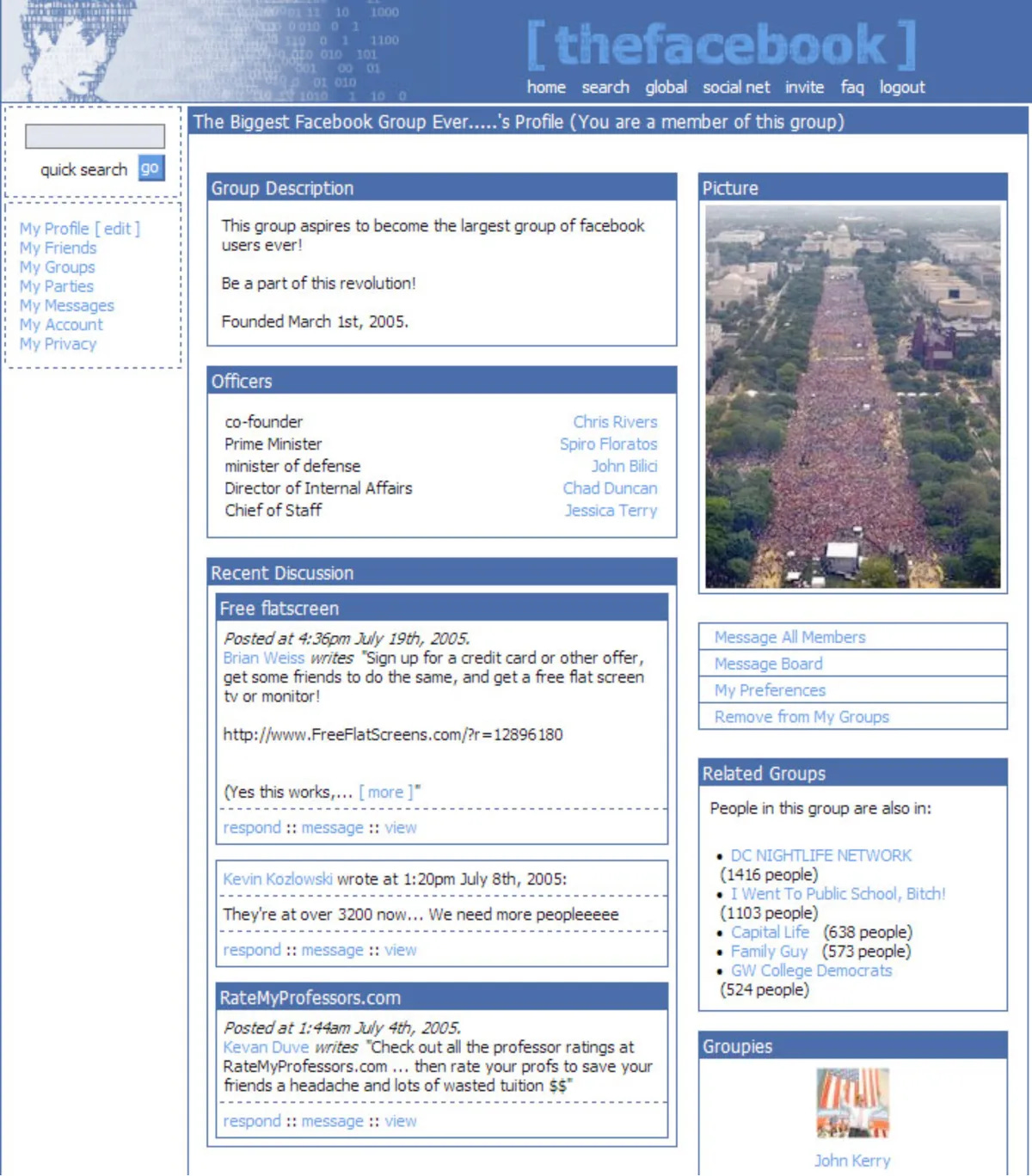
I remember clearly when Facebook first opened at my college, the University of Central Oklahoma. We had heard about some new exciting site that we didn’t have access to during the fall semester of 2004, and then we got access that next semester in early 2005 (back when it was still TheFacebook!).
At that point, Facebook did not feel like a modern social network that we are familiar with today; instead, Facebook then was more like a small community. The site was a social network just for UCO. I remember there was one guy who became infamous for trying to join every club on the UCO Facebook network, which was a thing a user could actually do back then.
Eventually, Facebook opened further and users could connect with those at other schools. The small community started to erode then, but there was still an aspect of exclusivity, as not everyone had a .edu email. In fact, I had a second .edu account because I took a language class at another college, so I made a secondary joke Facebook page. It seems so stupid right now to even type that since anyone can make an account now. But I promise you: it was rare and pretty funny back in the mid-2000s. It made for a good party trick.
Our Millennial wall officially fell in September 2006 when Mark Zuckerberg opened up Facebook to anyone with an email. It cemented the site as the global superstar social media network, but it marked the slow death of Facebook as my generation’s exclusive playground.
The site that began as the cool exclusive hang-out for college kids to connect with people they met at the Saturday night frat party morphed into a family-friendly place to share baby photos. Admittedly, part of that evolution was just my cohort growing up, but a lot more of it had to do with everyone joining, including our grandmas.
Other Lost Sites
A lot of us stayed on Facebook because it is nice to see those family photos and keep in touch with high school pals. But new sites emerged during this era that helped to drive our generation’s online subcultures, even if they weren’t as central THE Facebook.
Over at the r/Millennials subreddit, there has been considerable discussion about dead internet sites since the TikTok ban. The exact same meme was shared twice in the span of two days and still garnered thousands of responses. See some of my favorites below:
AIM
MSN
ICQ
StumbleUpon
MySpace
Vine
Xanga
Geocities
Last.fm
YikYak
Homestarrunner.com
Google Reader
Digg
eBaum's World
Some of these sites and services still exist technically, but they might be so different that they are in name only. Others are completely eradicated from the Internet. I certainly have fond memories of most of them—I definitely got into some mischief on old AOL Instant Messenger.
One that stands out for me personally was CollegeHumor, Back when I was in college, CollegeHumor was one of the biggest comedy media sites for my demographic. The comment section on each post was lively, adding inside jokes to the comedy. As I graduated, my frequency on the site slowed until I stopped logging on altogether. Years later, I went back to CollegeHumor and it was just gone—the URL for the site simply linked directly to the YouTube channel. All the comments, users, and culture around posts were gone forever.
The same can be said for every site, and more, that the Millennials listed. These sentiments aren’t even alone to Millennials. Parts of Gen X and others have long lamented the loss of the old Internet, especially chat boards and hobbyist groups.
Dying By 1000 Algorithm Cuts
Many sites do not simply get unplugged overnight like with TikTok. Instead, there is often a long, steady decline related to bad decisions by the leaders of these companies.
I have already written a lot about the demise of Twitter. It can certainly still be an important lesson here. On a whim, Musk changed the algorithm and my posts basically disappeared from the feeds of my 15K followers.
But it was not just Musk and Twitter, I’ve had a similar development on Instagram.
My account BladeRunnerReality was a one-time viral star on Instagram. The account amassed almost 120K followers at its peak, was featured on Instagram’s main page, and even garnered media attention. Each post would get thousands of likes or comments, with steady growth of new followers.
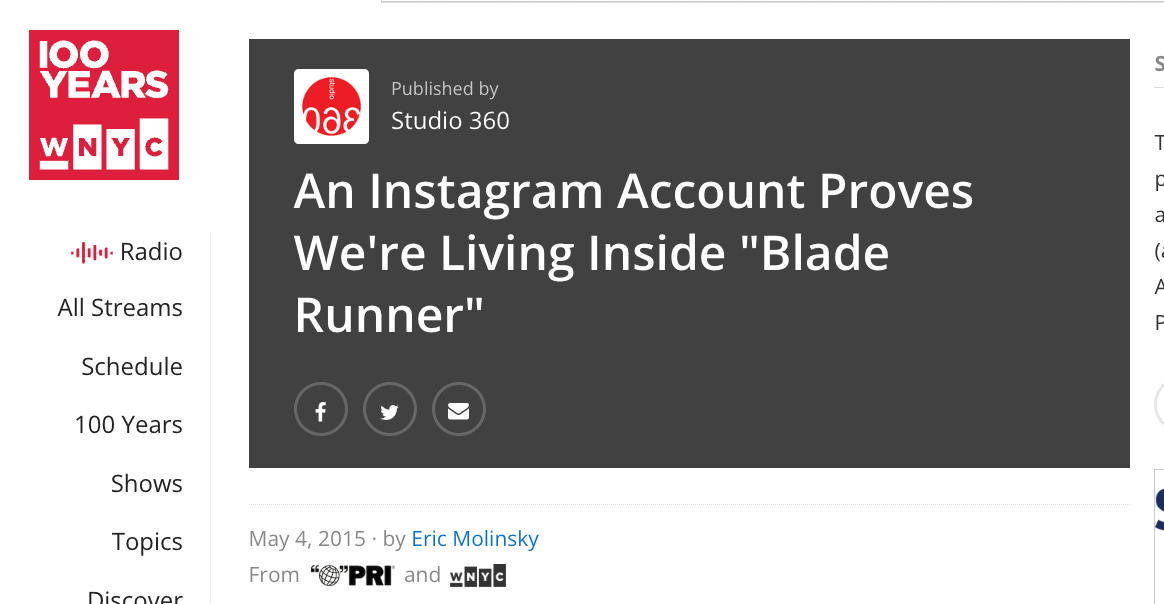
Then, one day, it was all over. Instagram changed something in its algorithm and our page plunged in views. Likes and comments went to a trickle, and follower growth stopped, even sliding downward. It was disappointing, and posting started to feel more like a chore at that point. We decided to simply retire the page rather than continue to fight.
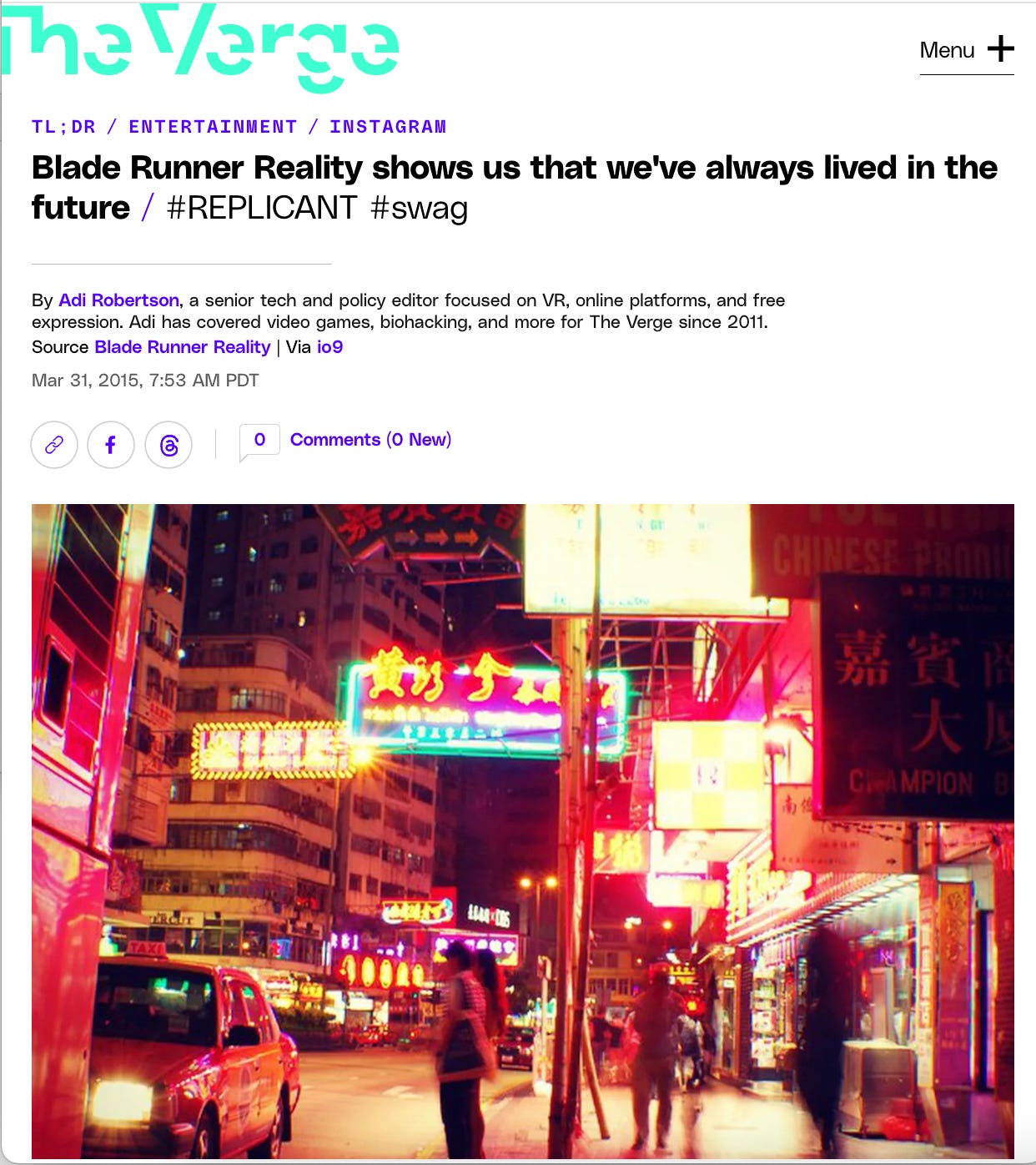
Don’t Put All Your Eggs Into One Social Media Basket
Even though my accounts had fairly large followings, they weren’t really “my” followers. Social media sites can dictate when and what their users see. We don’t own anything on these platforms and have little agency. I have learned that the hard way twice now.
It feels like I somehow lost a superpower. I could post and have thousands of people around the world reading my commentary—it felt like power. That’s gone now, at least on Twitter and Instagram.
TikTokers will have this same sense of lost ability, I’m sure. They will feel that their wings have been clipped. Even though it seems that Trump has delayed the execution, the long-term future is still up in the air.
It’s time to start looking for new apps. Don’t just park on Xiaohongshu (RedNote) as a TikTok replacement. Diversify. No one should put all of their eggs into the same basket. We don’t own our followers on these sites and they could come crashing down at any time.
The death of TikTok was merely sped up by the US government’s decision to ban it. This was bound to happen eventually, just like the Millennial platforms before. Welcome, Zoomers. Lament the loss proudly. Our generations are the experiments for this new rite of passage that all future generations will face going forward.


